Roses truly stand out from the others in the garden with their unique shape and colorful blossoms. With over 100 species, roses can be a gorgeous addition to your landscape, infusing any outdoor space with their pleasant scent and flowers. However, they can be quite challenging to grow since they require regular care and pruning. In this guide, we’ve got you covered with all things you need to start growing a rose tree.
TIME AND LOCATION
The best time to plant is typically late winter to early spring or in the fall. Roses thrive in sunlight, so they would love a sunny spot. Ensure the soil is well-drained and rich in organic matter.
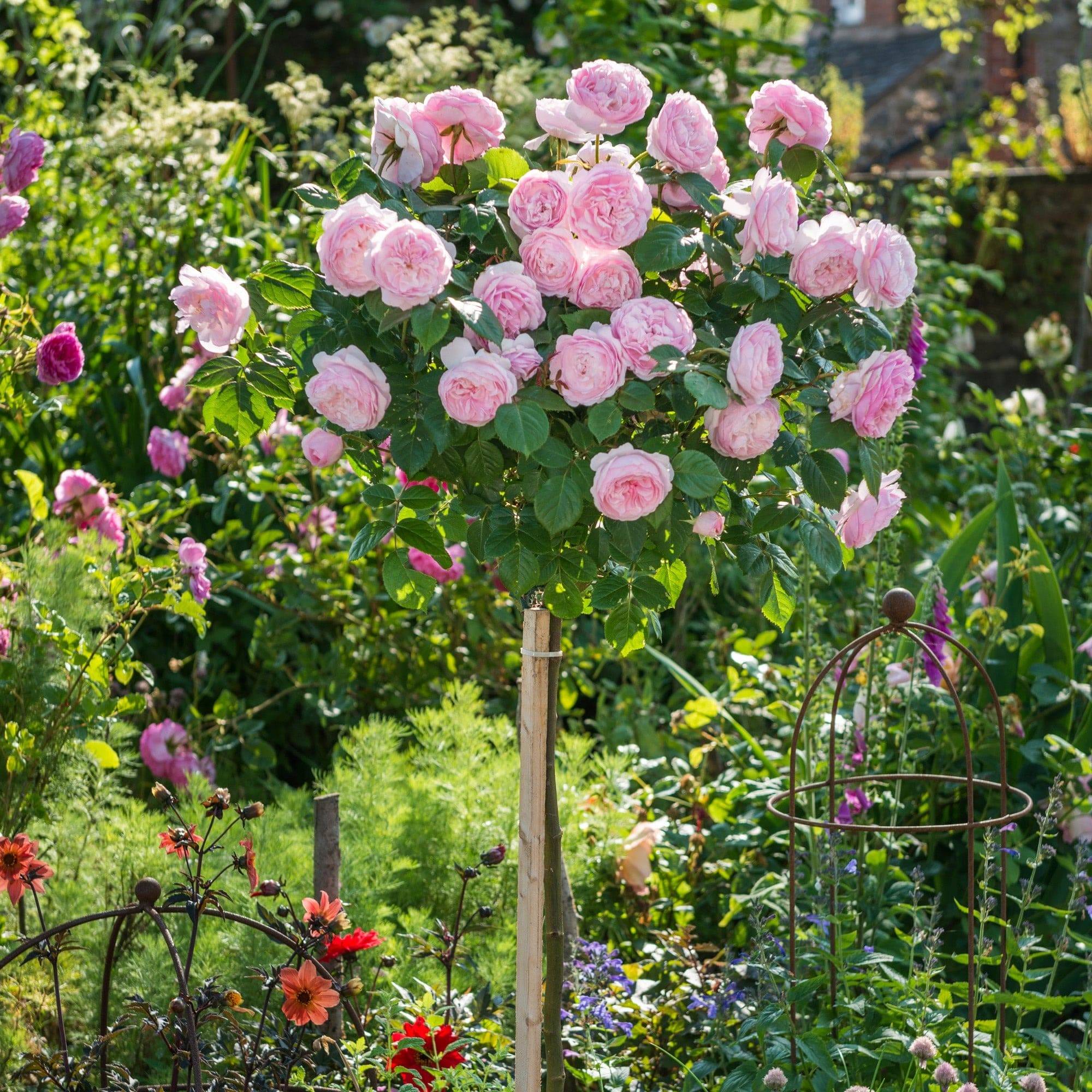
If you’re blessed with a variety of rose colors, plan your garden layout, considering the height and spread of each type. Whether it’s a dedicated rose bed or mixed with other flowers, the location sets the stage for the blooming success.
STEPS TO PLANT A ROSE TREE
Step 1: Prepare The Soil
Start by preparing the soil. Roses love well-draining soil with a slightly acidic to neutral pH. Besides this key requirement, you can incorporate organic matter like compost to boost fertility and enhance drainage.
Step 2: Choose Your Rose Tree
Select a healthy rose tree from a reputable nursery. A well-branched plant with green, disease-free leaves is a perfect candidate to grow in your garden. Bare-root roses are often more economical, while container-grown roses offer a head start.
Step 3: Dig A Proper Hole
Your hole should be wide enough to accommodate the roots without crowding. The depth should be such that the graft union (the swollen area where the rose is grafted onto the rootstock) sits just below the soil surface.
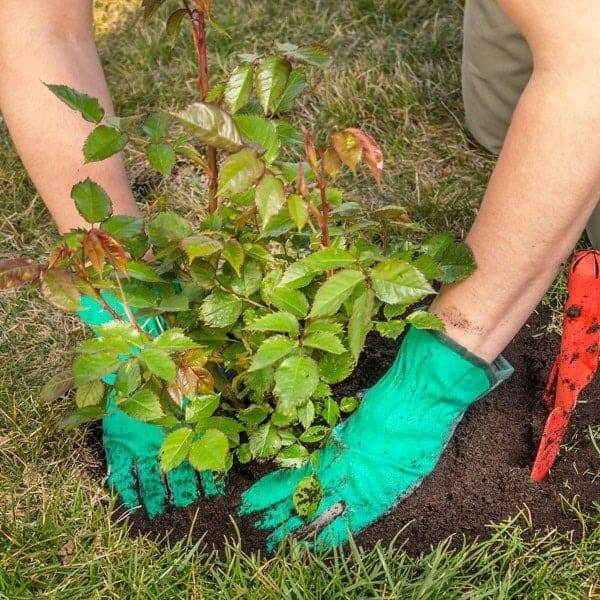
Step 4: Planting
Place the rose in the center of the hole. Spread out the roots and backfill with soil, ensuring there are no air pockets. Water the rose thoroughly to settle the soil around the roots.
Step 5: Mulch And Water
Mulch the base of the rose to retain moisture and suppress weeds. Water deeply, especially during dry spells. Roses prefer consistent moisture but can’t tolerate waterlogged conditions.
Step 6: Support Young Roses
If you’re planting a young rose tree, provide support with stakes. This helps the young plant establish itself without being swayed by winds.
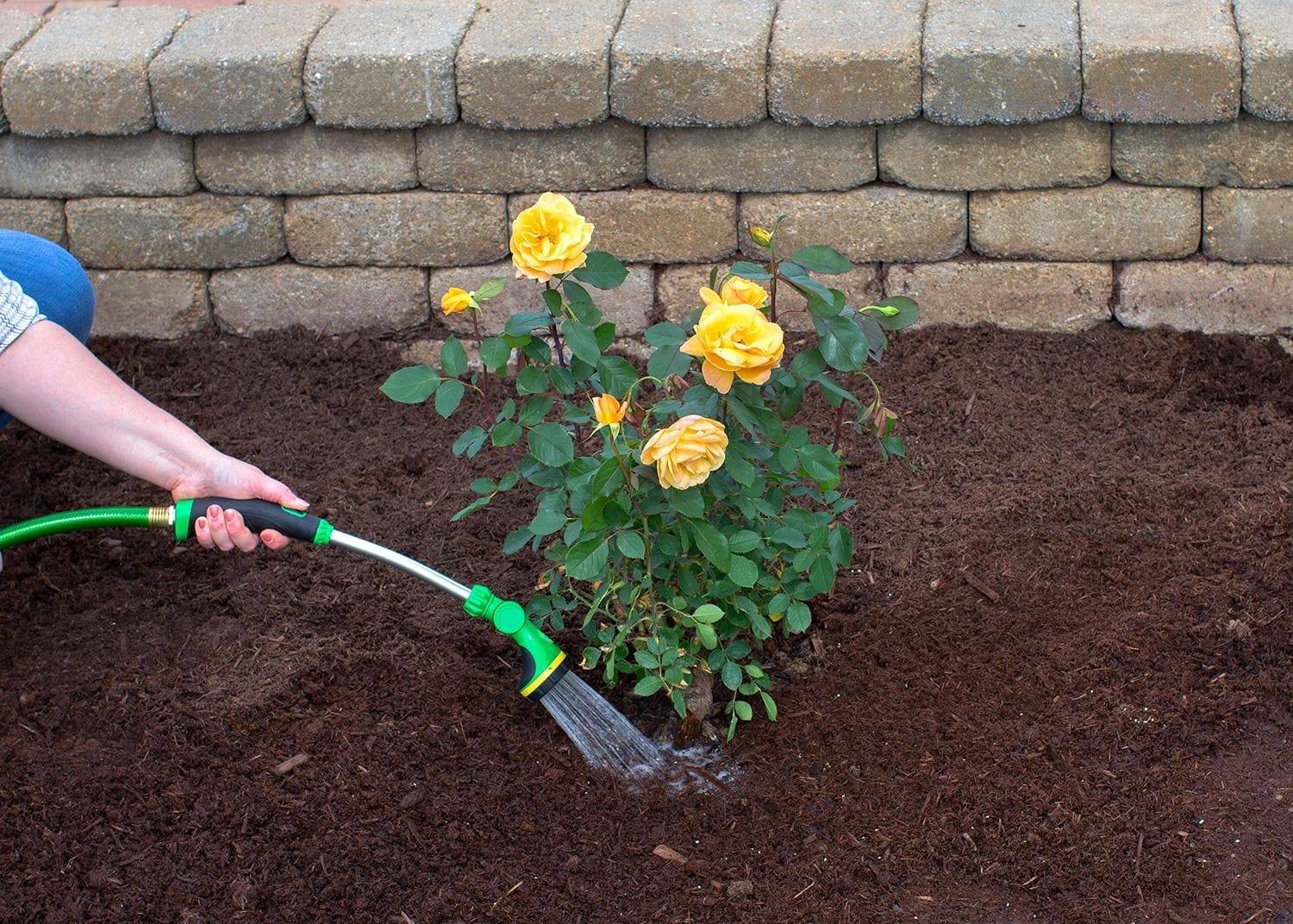
TAKE CARE OF A ROSE TREE
1. Watering
Roses need regular watering, especially during dry spells. The rule of thumb is to water deeply, allowing the soil to absorb moisture. You should avoid overhead watering as it can lead to fungal diseases. A consistent watering schedule, preferably in the morning, helps maintain healthy roots.
2. Fertilizing
Feed your rose tree with a balanced fertilizer in spring as new growth begins, then repeat in late spring and early summer. Plus, avoid fertilizing late in the growing season to prevent tender new growth that may be damaged by frost.
3. Pruning
Pruning is a vital aspect of rose care. It promotes air circulation, reduces disease risk, and shapes the plant. In late winter or early spring, you should start removing dead or diseased wood and pruning to shape the plant and encourage robust growth. Hybrid teas and floribundas often benefit from more aggressive pruning, while shrub roses may need a lighter touch.
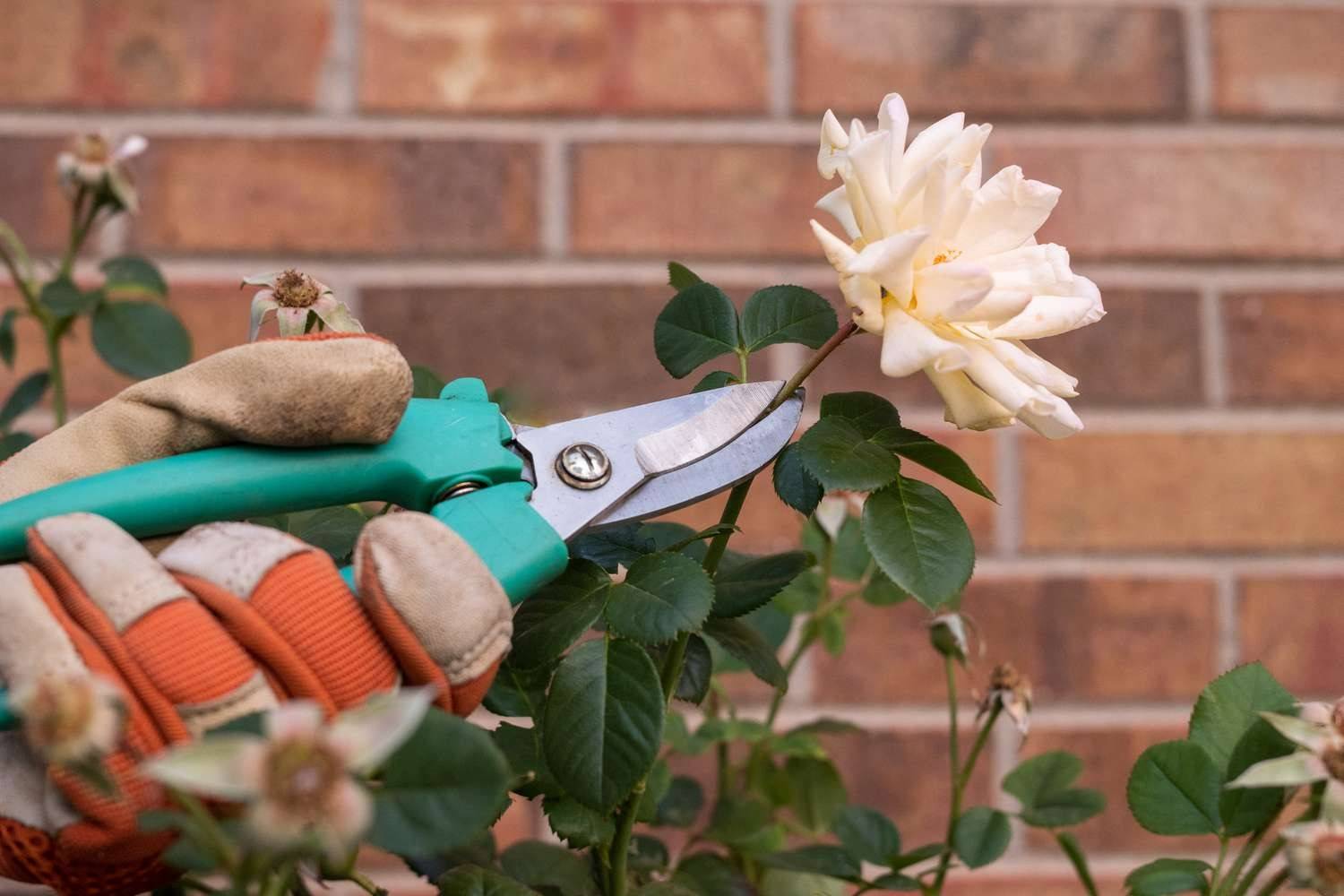
OTHER TIPS FOR SUCCESS
1. Keep An Eye On Pests And Diseases
Watch for pests and diseases that can affect your rose tree, such as aphids, spider mites, Japanese beetles, powdery mildew, black spots, or rust. Inspect your rose tree regularly, and treat any problems promptly with organic or chemical methods.
2. Protect Roses In Winter
Protect your rose tree from harsh winter conditions, especially if you live in a cold climate. You can wrap the stem with burlap, straw, or bubble wrap, and cover the graft union with soil or mulch. Another way is to move it to a sheltered location.
3. Pay Attention To Temperature And Humidity
Roses can struggle in extremely hot and humid conditions. When the air is very humid, the steamy atmosphere may cause them to require less water, so it’s important to monitor them for any signs of drooping before watering them. Additionally, high temperatures can attract pests that have the potential to damage your beautiful flowers.
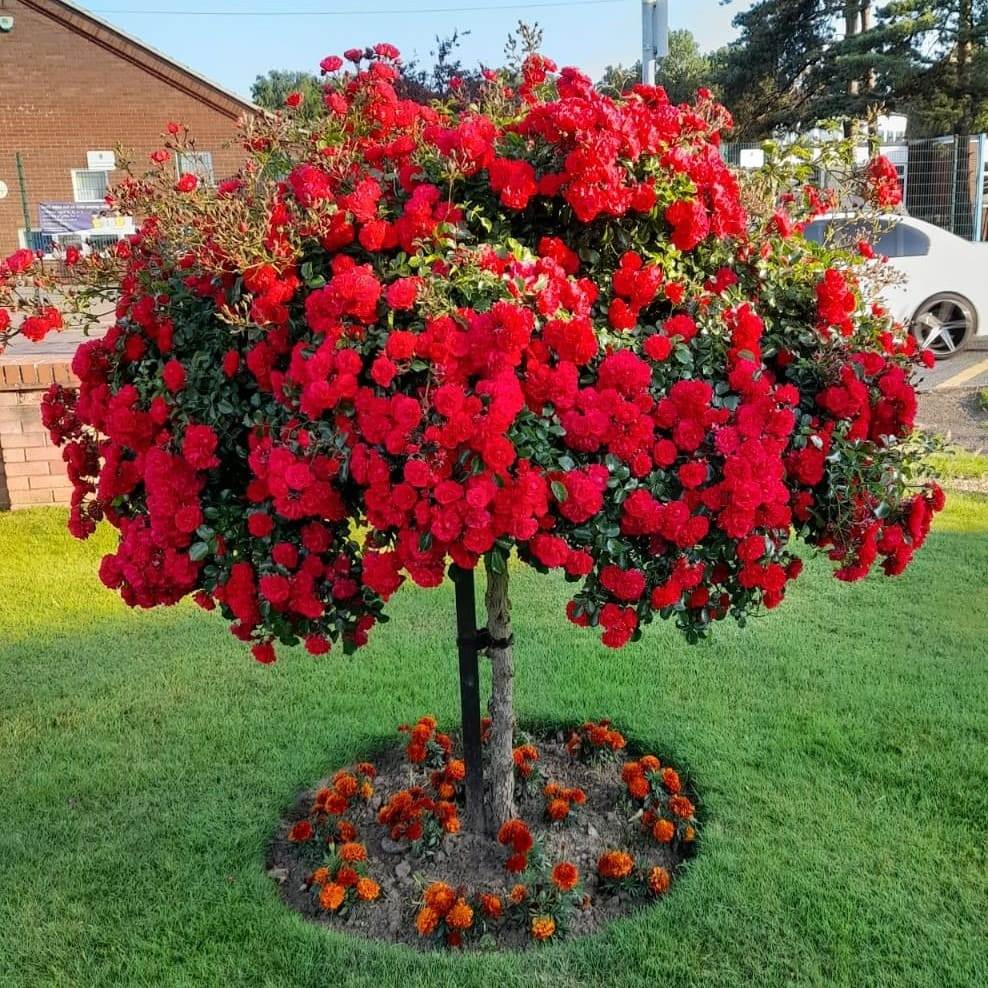
The presence of rose trees enhances the overall appearance of the landscape, giving it a polished and refined look. By giving your prized rose tree the proper care and attention, you can easily maintain its beauty and health with minimal fuss. And all of your efforts will pay off when you watch your roses blooming in sunlight with a refreshing scent in the air.
